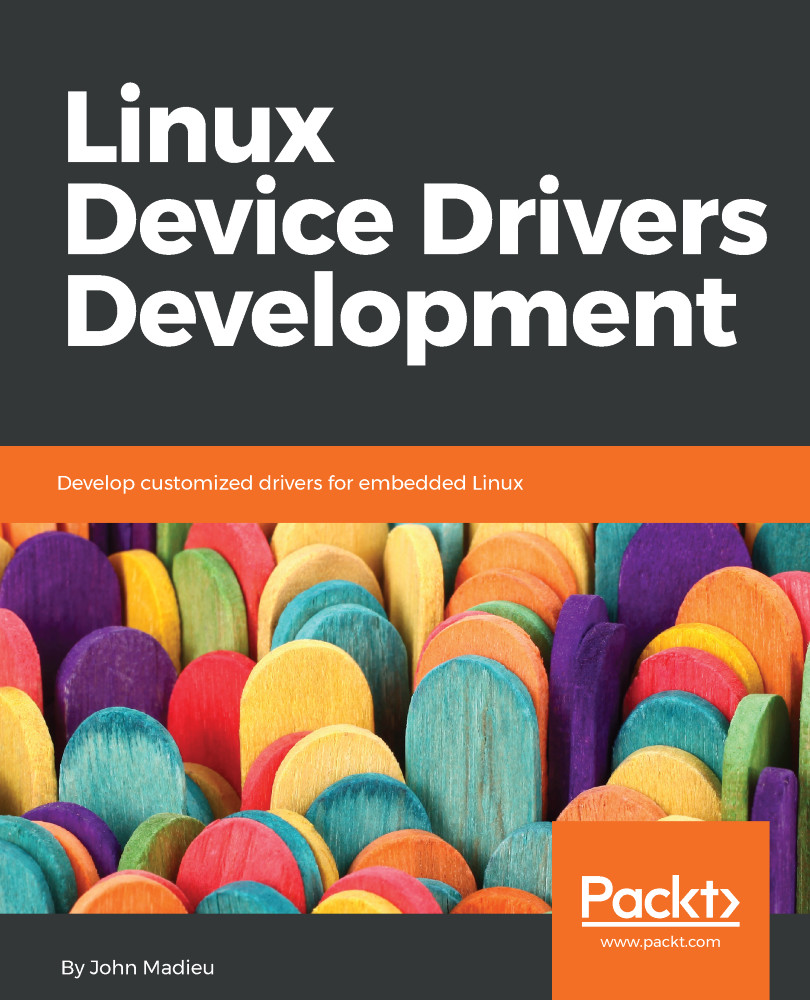Character devices transfer data to or from a user application by means of characters, in a stream manner (one character after another), like a serial port does. A character device driver exposes the properties and functionalities of a device by means of a special file in the /dev directory, which you can use to exchange data between the device and user application, and also allows you to control the real physical device. This is the basic concept of Linux that says everything is a file. A character device driver represents the most basic device driver in the kernel source. Character devices are represented in the kernel as instances of struct cdev, defined in include/linux/cdev.h:
struct cdev {
struct kobject kobj;
struct module *owner;
const struct file_operations *ops;
struct list_head list;
dev_t dev;
unsigned int count...

